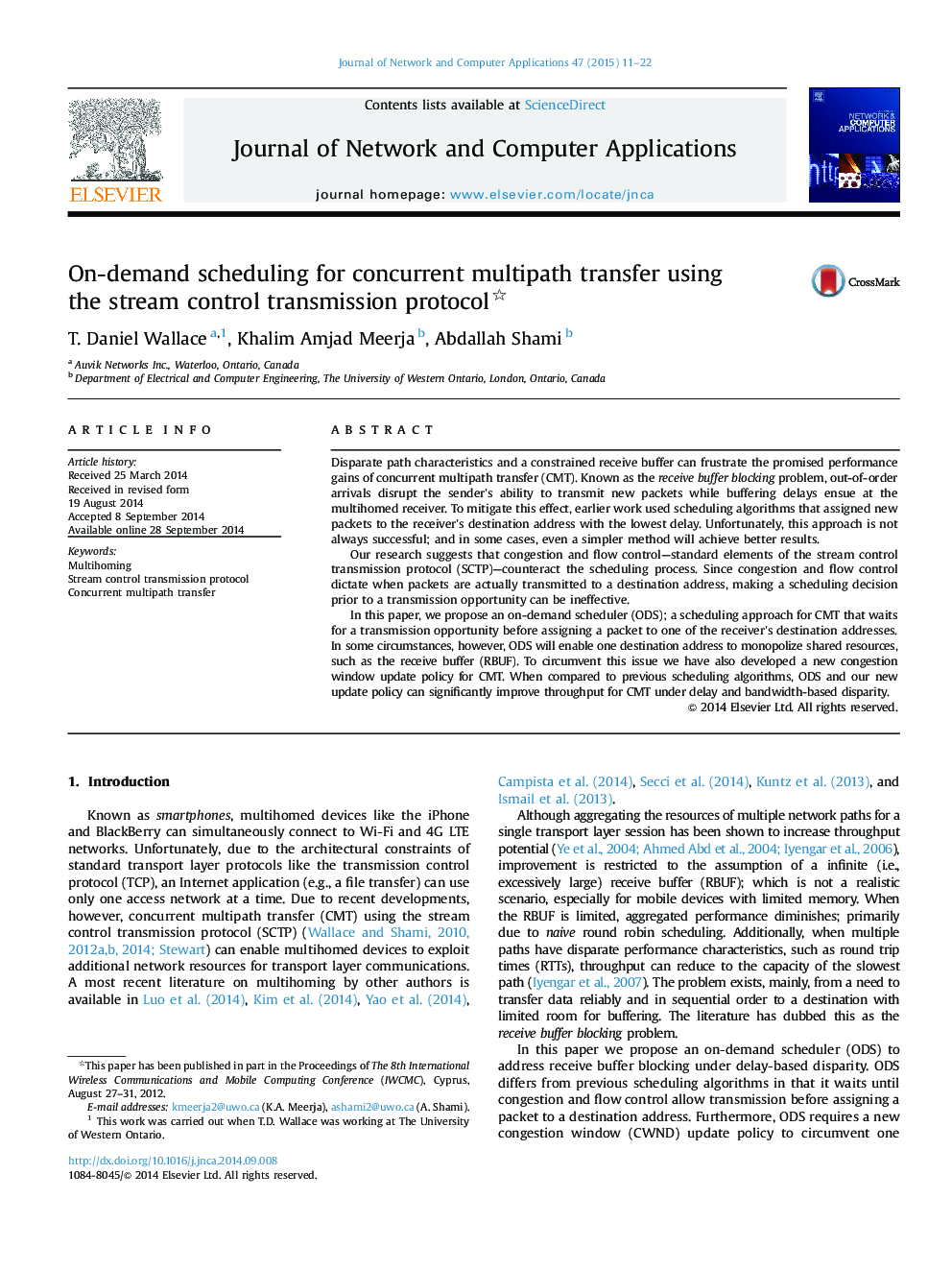| Article ID | Journal | Published Year | Pages | File Type |
|---|---|---|---|---|
| 459117 | Journal of Network and Computer Applications | 2015 | 12 Pages |
Disparate path characteristics and a constrained receive buffer can frustrate the promised performance gains of concurrent multipath transfer (CMT). Known as the receive buffer blocking problem, out-of-order arrivals disrupt the sender׳s ability to transmit new packets while buffering delays ensue at the multihomed receiver. To mitigate this effect, earlier work used scheduling algorithms that assigned new packets to the receiver׳s destination address with the lowest delay. Unfortunately, this approach is not always successful; and in some cases, even a simpler method will achieve better results.Our research suggests that congestion and flow control—standard elements of the stream control transmission protocol (SCTP)—counteract the scheduling process. Since congestion and flow control dictate when packets are actually transmitted to a destination address, making a scheduling decision prior to a transmission opportunity can be ineffective.In this paper, we propose an on-demand scheduler (ODS); a scheduling approach for CMT that waits for a transmission opportunity before assigning a packet to one of the receiver׳s destination addresses. In some circumstances, however, ODS will enable one destination address to monopolize shared resources, such as the receive buffer (RBUF). To circumvent this issue we have also developed a new congestion window update policy for CMT. When compared to previous scheduling algorithms, ODS and our new update policy can significantly improve throughput for CMT under delay and bandwidth-based disparity.
